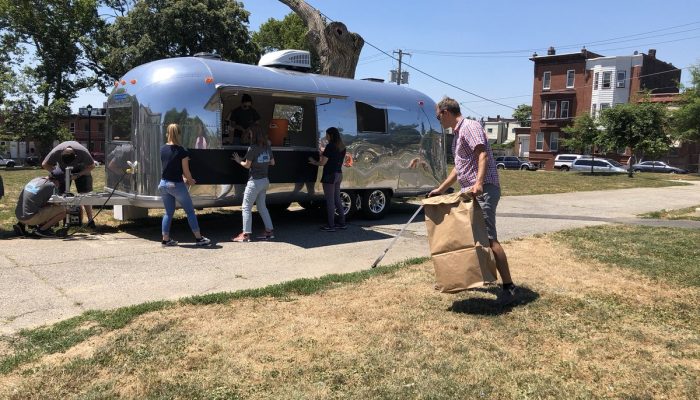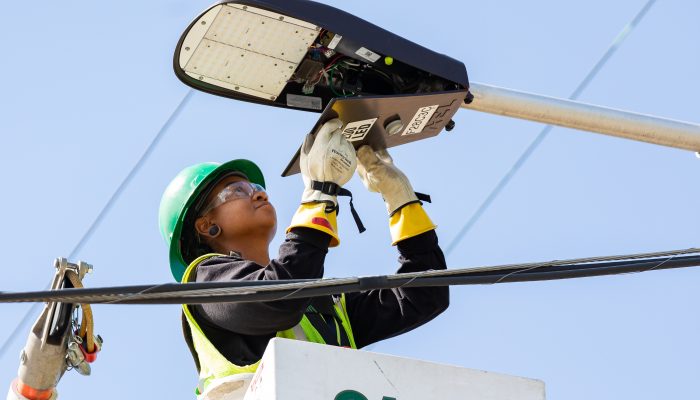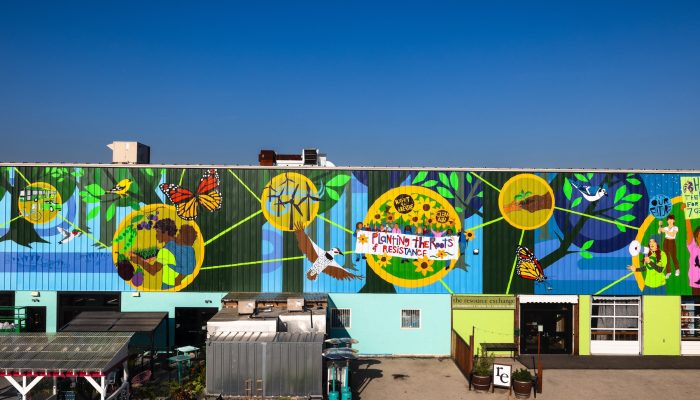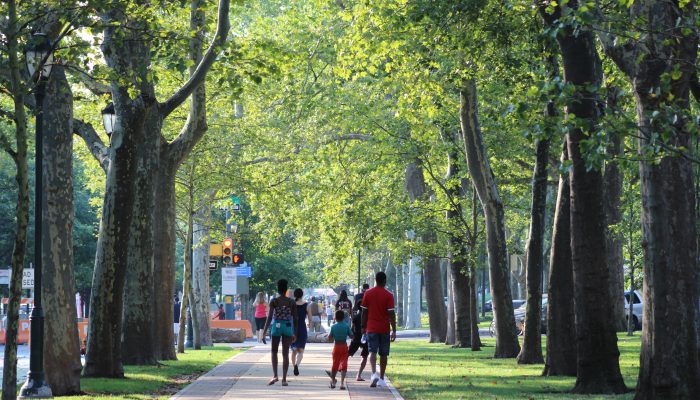Welcome to the Office of Sustainability’s new blog series, From the Ground Up. The title is borrowed from a book by Luke W. Cole and Sheila R. Foster released in 2001 as an account of the early Environmental Justice (EJ) movement in the United States. Check out the first and second posts if you haven’t already!
Project Origins
When David Brindley first observed trash and litter in his West Philly neighborhood, he committed to taking small but consistent steps to address the problem. For two years, David walked around his neighborhood once or twice a week for 15 minutes at a time. With a grabber tool in hand, he picked up plastic water bottles, snack bags, and other commonly littered items. David described this weekly ritual as his “Zen Garden” because it became a chance for him to unwind.
Eventually, David began to notice patterns. He saw that residents were more likely to clean in front of their own homes while the trash accumulating on street corners and in storm drains usually went untouched.
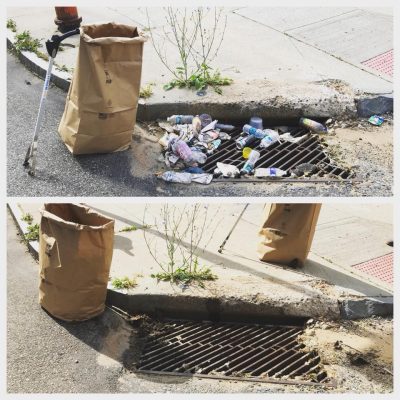
After two years, David observed a change. Although there were still littered items here and there, the overall quantity of trash had decreased. Because of his persistence, and the persistence of others who also cleaned, his neighborhood became more resilient to the issue of trash. Given this outcome, David was inspired to recreate this same synergy in other parts of Philly. He knew there were others who were not willing to wait around for this problem to be solved.
David connected to the city’s tech community through Code for Philly. Together, they decided that an online platform would be a great way to engage people. The platform would allow its users to see who is actively cleaning in their neighborhood. The website was launched in October 2016 and features the first map-enabled adopt-a-block site in the country! David believes the site’s popularity citywide is due to how much litter impacts other issues. Illegal dumping and littering is more than an issue of aesthetics. Improper trash disposal can impact crime, public health, and the overall walkability of a neighborhood. A recent study shows the intimate connection between health, wellness, and one’s immediate environment.
Not in Philly creates an easy way for residents to know who is cleaning in their neighborhoods. This approach allows residents to join with neighbors or choose to clean a different block so that the whole area is covered. The needs in a community can determine how the site is used. Not in Philly reaches those who prefer to work solo, those who want to work in groups, and everyone in-between. Jokingly, David refers to the program as Block Captains for Introverts. Participation is flexible, so it is designed to complement existing citywide programs like PMBC’s Block Captains, Park Friends groups, and Neighborhood Cleanup Events.
What’s Next
So, what’s next for Not In Philly? It costs about $25 to equip someone with a grabber and other supplies to carry out regular clean-ups over a 6 month period. Not in Philly is only funded in Walnut Hill and Spruce Hill so they are currently looking for sponsors to expand! In planning for the future, David is also exploring how the program can be more useful in marginalized communities. He would also like to see the program incorporated into a mobile app in which members can find each other in real time.
Check out the Not In Philly webpage to see who is cleaning in your neighborhood!
Also, make sure you are following Not in Philly on Twitter, Instagram, and Facebook. You can see what others are doing in their neighborhoods or submit photos of your own!

